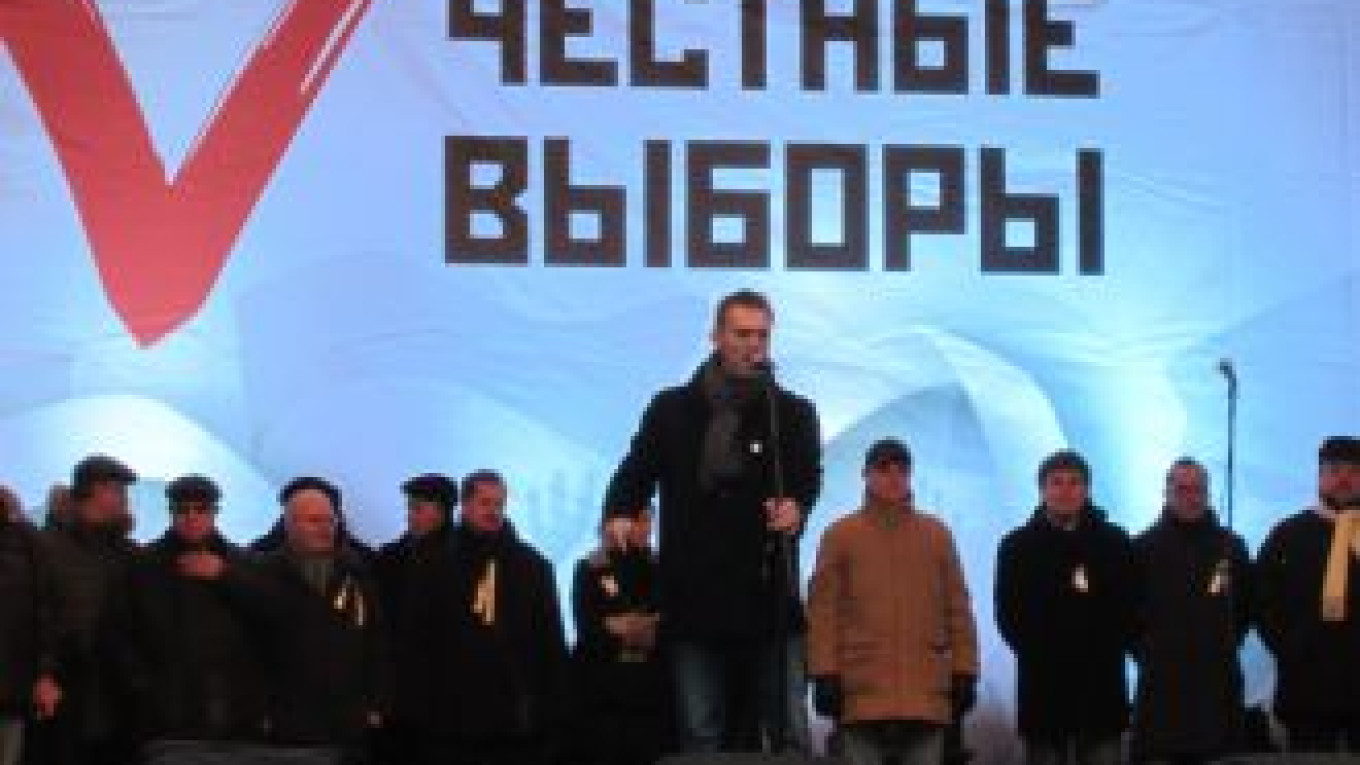Well-known opposition figures like anti-corruption blogger Alexei Navalny and former chess champion Garry Kasparov joined lower-profile personalities like former Kremlin G8 sherpa Andrei Illarionov and political analyst Andrei Piontkovsky in a new 45-member "shadow government," according to election? results? released late Monday.
The online election, which was extended into a third day Monday after hacker attacks disrupted weekend voting, saw a turnout of 83 percent, the head of the shadow elections commission, Leonid Volkov, said on? Twitter.
Of the 170,012 people who registered to vote, the identities of 97,727 were verified and 81,801 ended up voting, according to the elections commission's website, cvk2012.org.
Volkov, who also announced the results live on Dozhd television, indicated that the opposition's support went far beyond Moscow, the site of the biggest protests against President Vladimir Putin during his 12 years in power. Volkov said only about 35 percent of the votes were cast in the capital.
The authorities and many analysts have suggested that the anti-Putin sentiment of the mostly middle-class protesters in Moscow is not shared by people in the provinces.
The newly elected coordination council is an attempt by the opposition to organize into a united force capable of maintaining its momentum after a tumultuous 11 months that started with mass rallies after disputed State Duma elections in December. Those rallies prompted the Kremlin to promise political reform but also to pass a series of tough laws that has tightened the screws on protests and other initiatives that the Kremlin sees as challenging its legitimacy.
Navalny won the most support in the opposition election, with 43,723 votes, and will sit on the coordination council with the likes of socialite Ksenia Sobchak, Solidarity leader Ilya Yashin, environmentalist Yevgenia Chirikova, Parnas leader Boris Nemtsov, journalists Oleg Kashin and Olga Romanova, Left Front leader Sergei Udaltsov, and recently ousted State Duma Deputy Gennady Gudkov and his son, Duma Deputy Dmitry Gudkov, according to news reports.
Two ultranationalists, Alexander Belov (Potkin) and Dmitry Demushkin, did not gain enough votes to secure seats.
A Message from The Moscow Times:
Dear readers,
We are facing unprecedented challenges. Russia's Prosecutor General's Office has designated The Moscow Times as an "undesirable" organization, criminalizing our work and putting our staff at risk of prosecution. This follows our earlier unjust labeling as a "foreign agent."
These actions are direct attempts to silence independent journalism in Russia. The authorities claim our work "discredits the decisions of the Russian leadership." We see things differently: we strive to provide accurate, unbiased reporting on Russia.
We, the journalists of The Moscow Times, refuse to be silenced. But to continue our work, we need your help.
Your support, no matter how small, makes a world of difference. If you can, please support us monthly starting from just $2. It's quick to set up, and every contribution makes a significant impact.
By supporting The Moscow Times, you're defending open, independent journalism in the face of repression. Thank you for standing with us.
Remind me later.


